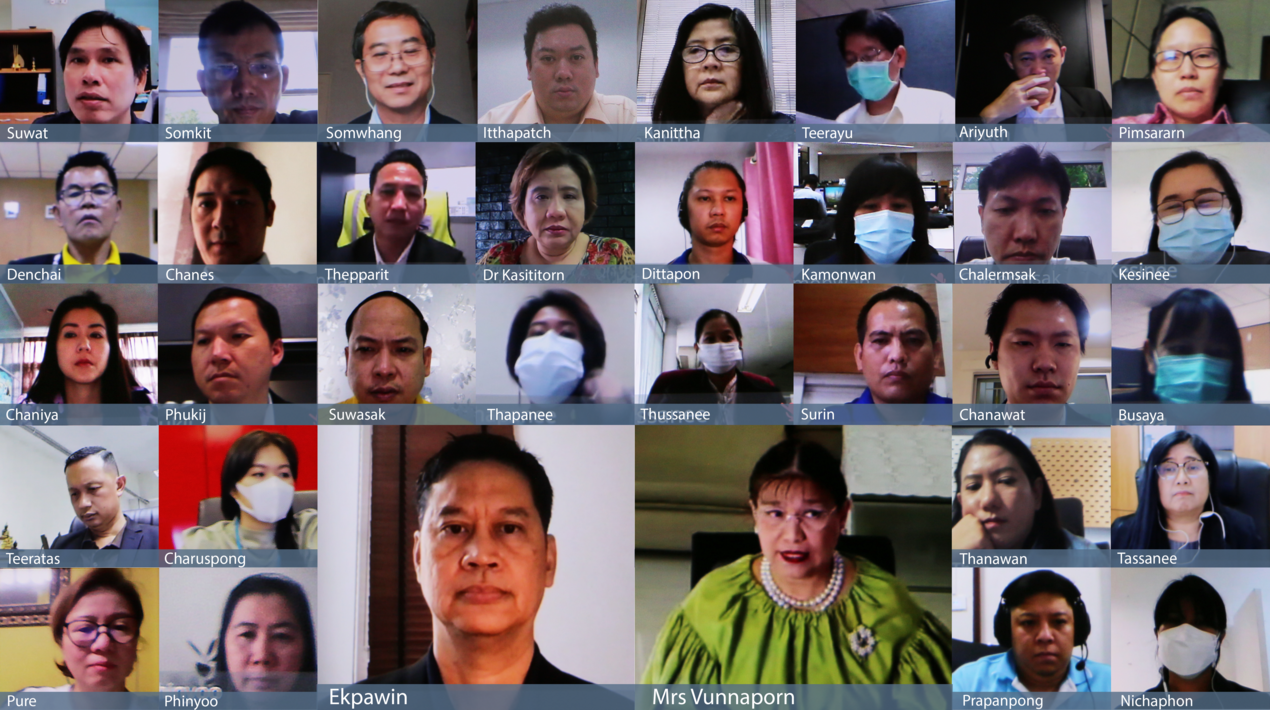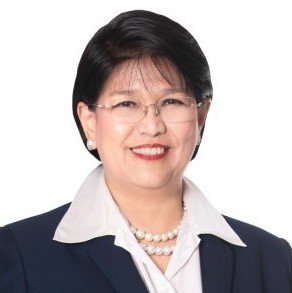
Government agencies around the world have been working hard to mitigate the impact of the COVID-19 pandemic and to meet increasingly higher citizen demands. As the new normal accelerates digital transformation, the public sector needs to ensure its smooth and uninterrupted digital services for the citizens.
While people, process and technology are integral aspects of digital transformation, technologies form a foundation for a successful project. That being said, for tech to be useful, modernising the on-premises IT environment and applications that span data centres, edge locations and public clouds is essential.
Governments acknowledge that technologies bring value to enable a connected and innovative ecosystem, especially in a fast-changing digital-enabled environment. While in 2020, business continuity was the priority, 2021 marks a turning point with innovation becoming the focus for future-ready organisations looking to accelerate their growth.
To ensure the success of Asia’s rapidly digitalising business environment, organisations need a holistic approach to deliver superior digital experiences across any cloud, any application and any device, seamlessly and securely.
Thailand is progressing in its digital transformation efforts to achieve a resilient, inclusive and innovation-led economy. The country will be in a better position to deliver enhanced digital experiences to digital-first Thai citizens by harnessing next-generation technologies such as cloud computing. Nonetheless, as efforts continue to accelerate digital transformation, the public sector must strengthen the mission-critical digital infrastructures.
The initiative to use a centralised data-sharing government platform by 2023 through the Government Data Center and Cloud (GDCC) service as part of efforts to boost public services within a single window for data access is a move in the right direction.
In all this, the government must build trust for digital services and platforms among citizens to bridge the divide within the nation.
Aligning resources, particularly budgets, with innovation is another prominent challenge facing the government. How can agencies modernise, re-platform, re-host and refactor applications to transition from monolithic systems to agile, streamlined microservices? The answers involve modest, scalable steps:
Start small and focus. The modernisation of critical applications can be gradual. The optimal strategy to migrate applications from old systems to cloud environments is by streamlining the current portfolio of applications.
Scale fast through automation and iteration. Replacing manual processes with automation will also significantly improve downtime and ensure continuous delivery of services.
The ongoing pandemic results in the rapid adoption of cloud computing and SaaS apps in recent months. This has also enabled agencies to effectively operate with a distributed workforce and remote working. Agencies are eager to capitalise on the speed, scale and flexibility cloud-based infrastructure can provide to the anywhere workspace.
However, as cloud computing grows in popularity and transforms how governments collect, use and share data, it also becomes an attractive target for cybercriminals.
Addressing the challenges of a distributed workforce requires a modern, integrated approach. Future-ready workforce solutions will enable a seamless and more secure digital employee experience, driving greater outcomes in the new world of work. An intrinsic approach to organisational security will provide an additional layer of robust protection for mission-critical operations and infrastructures to fast-track innovation and resilience.
This was the focal point of the OpenGovLive! Virtual Breakfast Insight held on 8 September 2021. This session aimed at imparting knowledge and strategies on how to unlock a multi-cloud future to accelerate digital transformation and delivering secured citizen-centric services with agility, scalability, and speed.
Finding Partners for Smart and Secure Cloud Services

To kickstart the session, Mohit Sagar, Group Managing Director and Editor-in-Chief, OpenGov Asia delivered the opening address.
Mohit acknowledged that Thailand has been heavily encouraging digital transformation – and successfully, too. Last year, Thailand ranked first among 176 countries in terms of fixed broadband internet speeds. Within ASEAN, Thailand was the first country to launch commercial 5G services. This is a great indicator of the nation’s commitment and planning for tech adoption.
Nonetheless, as across the world, the COVID-19 pandemic tested Thailand’s agility to adapt to the new normal and the government was expected to deliver citizen services digitally. Further, citizens’ expectations and demands have changed having been exposed to the efficiency and ease of transactions with the private sector.
The Government Data Center and Cloud service (GDCC) aims to be a foundational digital service that drives digital transformation in Thailand. Mohit encouraged the public sector to embrace the cloud technologies to serve the citizen better.
The importance of cloud is evident to all but governments globally have had to rethink their cloud strategy. As they rapidly migrate services to the cloud to enable better and wider access for all, creating a sound cloud strategy becomes paramount. Despite the 24/7 personalised digital services it can offer, security is critical. Irrespective, the government cannot let security issues cripple their decision to leverage cloud services.
As the Thai government explores cloud platforms and solutions, Mohit encourages scalability and agility. Agility is not only a matter of speed and flexibility but constantly rolling out small iterations.
In closing, Mohit emphasised the importance of finding the right partners to create the best citizen experience. Having competent experts who can focus on delivering smart and secure cloud services, allows governments to focus on their main tasks and key deliverables.
Thailand Government Data Cloud

The forum next heard from Mrs Vunnaporn Devahastin, Secretary-General, Office of the National Digital Economy & Society Commission at the Ministry of the Digital Economy & Society, who spoke on the landscape of data cloud in the Thai government.
Mrs Vunnaporn started by elaborating on objectives and goals in implementing a central government cloud project. The government wanted to provide a central system to offers standard and secure cloud services. The infrastructure was designed to support quick and thorough access to computer resources that would allow for the transformation into a digital government.
In addition, supporting analytics and big data is vital to the success of government cloud projects. This, in turn, drives the need to develop government personnel who can oversee and drive the transformation.
Per the Thailand National Data Strategy Roadmap, the short-term strategy is to focus on design and foundations. The government will establish a strategy and then pursue quick action on priorities, including data classification and integration as well as data protection and privacy. The next step is to set up enabling governance framework and eventually assess gaps across enablers and capabilities.
By 2022, Thailand will focus on the implementation of the strategy in priority themes, including public services, poverty alleviation, Small and Medium-sized Enterprises (SMEs) and industry. To implement the strategy, the government is looking to improve data governance and stewardship and then foster a centre of management and operation. Simultaneously, it will focus on people, training, culture, continuous partnerships, technology and environment.
In closing, Mrs Vunnaporn highlighted that GDCC and Public Cloud are part of cloud ecosystem and multi-cloud management is the key component of cloud marketplace.
VMware Enabling the Foundation for Digital Government

Ekpawin Sukanan, Country Manager at VMware Thailand spoke next presenter on the criticality of cloud technology in building digital government.
As is globally evident, government IT departments are facing unprecedented challenges. The four main challenges, according to Ekpawin, are the escalating pressure for modernisation, the urgent need for mobile workplaces and services, new expectations from citizens and the community and intensifying cyber threats.
Research shows that 70% of government IT Leaders believed their digital transformation plans would accelerate due to the pandemic. However, legacy systems impede agility and mission outcomes. As a result, governments have significantly increased the adoption of next-generation of clouds over the next three years.
According to a VMware study, ASEAN led in delivering superior digital experiences during the pandemic by providing seamless digital services, accelerating innovation and encouraging competitiveness. Thai citizens have high levels of digital inquisitiveness as they classify themselves as “digitally curious” or “digital explorers” – and they are ready for more digital experiences.
The nation has made digital literacy a priority and, in return, Thai citizens acknowledge that the government played a critical role in raising digital literacy levels. With citizens embracing superior digital experiences, digital literacy and technologies of the future, Ekpawin feels that citizen-government partnership may be a key differentiator for Thailand’s post-pandemic recovery.
Ekpawin firmly believes that agencies can solve their most pressing business challenges by being agile, providing convenience and creating trust. He suggests five ways to achieve digital government:
- Modernise government infrastructure and apps
- Expand digital capabilities and create new value
- Drive exceptional citizen-centred experiences
- Empower and scale a remote government workforce
- Protect government data and build citizen trust
Ekpawin highlighted how VMware technologies have helped the public sector in providing agile, secured and beneficial citizen-centric services. VMware provides a cloud-agnostic platform for digital transformation and offers a single, flexible platform for infrastructure, applications, compute, networking, mobility and security.
Interactive Discussion
After the informative presentations, delegates participated in interactive discussions facilitated by polling questions. This session is designed to provide live-audience interaction, promote engagement, hear real-life experiences and impart professional learning and development for the participants. It is an opportunity for delegates to gain insight from subject matter experts, share their stories and take back strategies that can be implemented in their organisations.
The first poll asked about the current state of delegates’ organisation’s public cloud adoption. Close to half (46%) of the respondents agreed that they have some small workloads in the cloud. Meanwhile, the remaining delegates were equally split (18%) between cloud adoption still under evaluation, having production workloads less than fifty per cent in the cloud and having the majority of workloads in the cloud.
Delegates were asked what their organisation’s top priority for their Application Portfolio would be over the next 6 months. Half of them prioritised rehosting/migrating existing apps to cloud. One-fifth are looking to retain existing apps and 15% chose refactoring/developing new cloud apps as their main priority. A tenth prioritised re-platforming existing apps and leveraging Containers/Kubernetes and the remaining 5% are focussing on retiring old apps/leverage SaaS apps.
Asked about participants’ top challenge for adopting Kubernetes or Container/Microservices in their organisations, almost half (47%) see the lack of developer/operator skills as their biggest challenge. A little more than one-fifth (21%) said that they needed more information about Kubernetes or Container/Microservices. About 16% saw security concern as their main obstacle,10% chose ease of managing Kubernetes and 5% went with technology complexity as their biggest challenge.
The next question inquired about delegates’ organisation’s top security challenge in terms of technical factors. Almost half (45%) saw increasing sophistication and volume of threats as their primary security challenge. A little more than one-third opted for integrating different products from different vendors in the stack as an issue. Only 15% thought rapid application changes to be concerning and 5% said increased use of cloud is their top security challenge.
Surveyed on which aspect is a key focus area in your organisation’s security strategy over the next 6 months, a little less than one-third (31%) focused on network security. Delegates were equally divided (18.75%) between endpoint, workload, and cloud security. Only 6% chose workspace security.
On the issue of the biggest challenge delegates’ organisation is facing about WAN networks, delegates were equally split (30%) between security concerns on each branch and the high price of WAN link as their primary challenge. About 15% of delegates thought that WAN network is hard to manage. Delegates were also evenly divided (5%) between lack of visibility and complexity of the technology as their biggest obstacle.
Regarding the top challenge in adopting delegates’ own data centre over the next 6 months, 40% said that security is their main challenge. Delegates were split (28%) between monitoring and migrating to private cloud as their top obstacle. The remaining 4% chose server load balancer improvement as their biggest challenge.
Delegates were finally asked the biggest challenge their organisation is facing while working from home. A little more than half (52%) said that their biggest challenge is that the IT Operation cannot manage multiple device types while 43% chose security concerns. The remaining 5% felt it was slow traffic on shared servers.
Conclusion
It is obvious, Ekpawin feels, that cloud migration is taking place and the pandemic accelerated its adoption across the Thai public sector. Agencies need to gradually utilise all types of clouds, including government, public and private clouds to ensure the transition to a digital government is achieved smoothly and effectively.
Ekpawin thanked the delegates for the interesting and insightful session. He encouraged delegates to exchange ideas and invited delegates to reach out to his team to explore ways they could assist their agencies on their cloud journey.

















